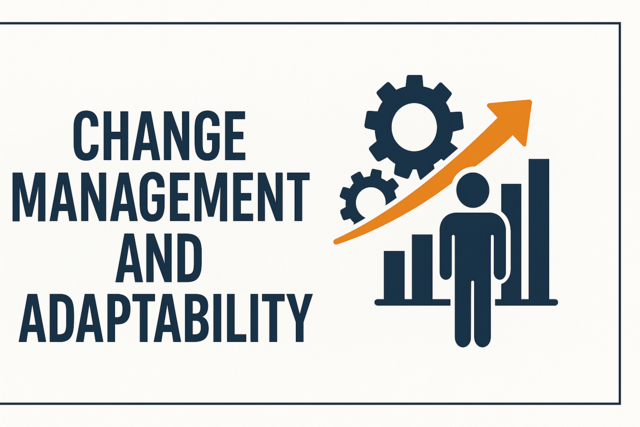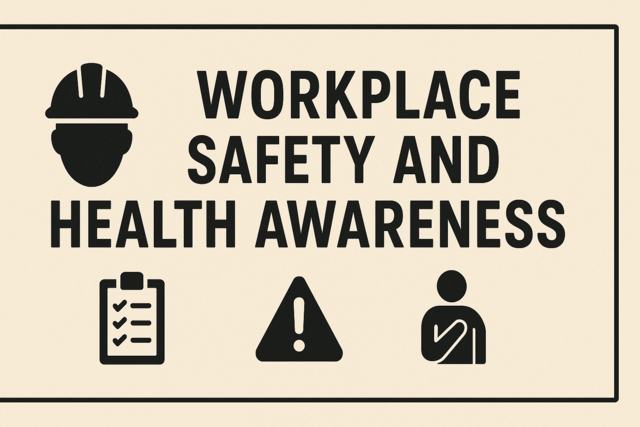Online Class: Financial Literacy for Adults

-
15Lessons
-
22Exams &
Assignments -
3Hours
average time -
0.3CEUs
Course Description
Have you ever found yourself navigating the murky waters of finances, feeling adrift as you attempt to make sense of income streams, bills, and those cryptic credit scores? You're not alone. Many adults find financial literacy complex and daunting, but imagine a life where you not only understand your finances, but master them, leading you toward stability and empowerment. Welcome aboard "Financial Literacy for Adults," a transformative journey meticulously crafted to elevate your financial wisdom and transform the way you perceive and manage money.
This is not just another online course; it's your gateway to financial freedom and confidence. Through immersive storytelling and engaging content, we break down every element of financial literacy into easily digestible insights, empowering you with the knowledge to make informed decisions about your well-being. Picture yourself as an active participant in every financial conversation, equipped with clarity and assurance that your plan today will carry you through tomorrow.
Visualize life without financial stress—when every bill is a manageable chapter of your monthly story, and saving for retirement or an emergency is no longer a challenge but a well-rehearsed symphony. With each lesson, you'll uncover the secrets behind promoting financial independence and dispelling uncertainty. Engage with your financial ecosystem intelligently as you learn to harness the untapped potential of diverse income streams, control your expenses, and see tangible benefits unfold with each calculated step forward.
What's the heartbeat of our course? A journey that's curated for anyone aiming to step out of the shadows cast by financial turbulence and into the warm light of financial autonomy. Here, you will grasp the fundamental differences between gross and net income, finding clarity on those deductions like taxes and insurance that often feel like intricate puzzles. Gain command over the numbers that define your earnings, ultimately shifting the power back to your pocket.
Credit scores will no longer loom ominously. Instead, they will transform into advantageous tools once you comprehend their structure and influence. Throughout the course, practical wisdom guides you—anticipate not just surviving but thriving within the credit landscape. Witness your financial rapport with lenders evolve from tentative to trustworthy. Through adept debt management strategies, learn to use technology to ally with your financial priorities, ensuring a secure and prosperous future.
Investment strategies become thrilling adventures instead of treacherous terrains. Our course reveals the art and science of balancing risk with opportunity, providing you with the compass to navigate stocks, bonds, mutual funds, and ETFs with certainty. Uncover methods to build a retirement tapestry that is as rich and robust as your ambitions. This is more than just securing your wealth: it's about securing the legacy you'll leave behind.
Take command in preparation for life's uncertainties, with expertly designed methods to cultivate a financial buffer that stands resilient against the unexpected. This newfound insight extends from understanding taxes as the backbone of your financial worlds to grasping insurance policies that protect your significant investments—from your home to your health.
But, our commitment extends beyond just education—it's about transforming you into a financially astute consumer. Learn the mechanism behind consumer protection, and step boldly into the marketplace, assured that your financial rights are defended. Harness intelligent shopping strategies and the power of FinTech tools to command respect and transparency in every transaction.
In "Financial Literacy for Adults," you're not just another student. You're an empowered individual, sweeping away past financial ambiguities and stepping confidently into a brighter, financially literate future. This course is your sanctuary for wealth-building wisdom and transformational knowledge, meant for those who dare to seek a truly empowered life. Are you ready for a journey that could redefine your relationship with money, forever? Join us, and step boldly into the mastery of your financial destiny. Make the decision that everyone wishes they had made yesterday; seize this course, because your future deserves it.
- Business
- Business Ethics Courses
- Harassment Prevention Courses
- Human Resources Certifications
- Management
- Aromatherapy Courses
- Caregiver Courses
- Career Development Courses
- Communications Courses
- Confidence and Self Esteem Courses
- Healing
- Human Anatomy Courses
- Medical Skills
- Health & Medicine
- Nutrition
- Marketing
- Microsoft Office Certification Courses
- Life Coaching Courses
- Self-Improvement
- Small Business Certifications
- Safety
- Writing Improvement
- Business Writing Courses
Course Lessons
Lesson 1. Diverse Income, Controlled Expenses: Your Financial Playbook
 Review Practice Worksheet: Lesson-1-WorkSheet-14126.pdf
Review Practice Worksheet: Lesson-1-WorkSheet-14126.pdf Lesson discussions: Reasons for Taking this Course
Lesson discussions: Reasons for Taking this Course Assessment: Lesson 1 Review Exam
Assessment: Lesson 1 Review Exam
Lesson 2. Mastering Net Income Calculations for Financial Independence
 Review Practice Worksheet: Lesson-2-HomeWork-14129.pdf
Review Practice Worksheet: Lesson-2-HomeWork-14129.pdf Assessment: Lesson 2 Review Exam
Assessment: Lesson 2 Review Exam
Lesson 3. The Science of Credit: Navigating Your Financial Health
 Review Practice Worksheet: Lesson-3-WordSearch-14133.pdf
Review Practice Worksheet: Lesson-3-WordSearch-14133.pdf Assessment: Lesson 3 Review Exam
Assessment: Lesson 3 Review Exam
Lesson 4. Strategic Debt Management for a Prosperous Future
 Review Practice Worksheet: Lesson-4-WordSearch-14136.pdf
Review Practice Worksheet: Lesson-4-WordSearch-14136.pdf Assessment: Lesson 4 Review Exam
Assessment: Lesson 4 Review Exam
Lesson 5. Diversified Investment Strategies for Financial Success
 Review Practice Worksheet: Lesson-5-Downloadable-14140.pdf
Review Practice Worksheet: Lesson-5-Downloadable-14140.pdf Complete: Lesson 5 Activity
Complete: Lesson 5 Activity Assessment: Lesson 5 Review Exam
Assessment: Lesson 5 Review Exam
Lesson 6. The Power of Interest Rates: Navigating Loans, Savings, and Investments for a Secure Future
 Review Practice Worksheet: Lesson-6-Activity-14143.pdf
Review Practice Worksheet: Lesson-6-Activity-14143.pdf Complete: Lesson 6 Activity
Complete: Lesson 6 Activity Assessment: Lesson 6 Review Exam
Assessment: Lesson 6 Review Exam
Lesson 7. Optimizing Your Retirement: Navigating Financial Strategies
 Review Practice Worksheet: Lesson-7-WorkSheet-14147.pdf
Review Practice Worksheet: Lesson-7-WorkSheet-14147.pdf Complete: Lesson 7 Activity
Complete: Lesson 7 Activity Assessment: Lesson 7 Review Exam
Assessment: Lesson 7 Review Exam
Lesson 8. Preparation for the Unexpected: Creating Your Financial Buffer
 Review Practice Worksheet: Lesson-8-WordSearch-14150.pdf
Review Practice Worksheet: Lesson-8-WordSearch-14150.pdf Complete: Lesson 8 Activity
Complete: Lesson 8 Activity Assessment: Lesson 8 Review Exam
Assessment: Lesson 8 Review Exam
Lesson 9. Taxes Matter: A Journey Through the Essentials of Financial Literacy
 Review Practice Worksheet: Lesson-9-Downloadable-14154.pdf
Review Practice Worksheet: Lesson-9-Downloadable-14154.pdf Complete: Lesson 9 Activity
Complete: Lesson 9 Activity Assessment: Lesson 9 Review Exam
Assessment: Lesson 9 Review Exam
Lesson 10. Insurance 101: Understanding Premiums and Policies
 Review Practice Worksheet: Lesson-10-HomeWork-14157.pdf
Review Practice Worksheet: Lesson-10-HomeWork-14157.pdf Assessment: Lesson 10 Review Exam
Assessment: Lesson 10 Review Exam
Lesson 11. The Art of Smart Shopping Through Consumer Protection
 Review Practice Worksheet: Lesson-11-WorkSheet-15390.pdf
Review Practice Worksheet: Lesson-11-WorkSheet-15390.pdf Complete: Lesson 11 Activity
Complete: Lesson 11 Activity Assessment: Lesson 11 Review Exam
Assessment: Lesson 11 Review Exam
Lesson 12. Homeownership and Financial Literacy: Building a Stable Future
 Review Practice Worksheet: Lesson-12-Activity-14160.pdf
Review Practice Worksheet: Lesson-12-Activity-14160.pdf Assessment: Lesson 12 Review Exam
Assessment: Lesson 12 Review Exam
Lesson 13. Recognizing Common Financial Scams
 Review Practice Worksheet: Lesson-13-HomeWork-14163.pdf
Review Practice Worksheet: Lesson-13-HomeWork-14163.pdf Complete: Lesson 13 Activity
Complete: Lesson 13 Activity Assessment: Lesson 13 Review Exam
Assessment: Lesson 13 Review Exam
Lesson 14. Budget, Save, Invest: The Triad of Smart Financial Planning
 Review Practice Worksheet: Lesson-14-Activity-14166.pdf
Review Practice Worksheet: Lesson-14-Activity-14166.pdf Assessment: Lesson 14 Review Exam
Assessment: Lesson 14 Review Exam
Lesson 15. FinTech Tools for Simplified Money Management
 Review Practice Worksheet: Lesson-15-WordSearch-14170.pdf
Review Practice Worksheet: Lesson-15-WordSearch-14170.pdf Lesson discussions: End of Course Poll; Course Comments
Lesson discussions: End of Course Poll; Course Comments Assessment: Lesson 15 Review Exam
Assessment: Lesson 15 Review Exam
Learning Outcomes
- Define and categorize fixed and variable expenses, providing examples of each, to assess their impact on personal financial planning.
- Demonstrate effective budgeting strategies, including the 50/30/20 rule, to prioritize needs, wants, and savings, enhancing financial decision-making skills.
- Calculate net income by accurately deducting taxes, deductions, and expenses from gross income to create a realistic budget aligned with financial goals.
- Define and differentiate between various income sources, including wages, freelance earnings, and investment income, to understand their impact on net income calculations.
- Demonstrate the ability to interpret a personal credit report by identifying key components such as payment history, credit utilization, and account longevity, and explaining their influence on credit decision-making.
- Define the role of a credit report in determining an individual's credit score by analyzing the impact of various credit factors on personal financial health.
- Analyze the differences between secured and unsecured debt and evaluate their trade-offs, including borrowing costs and potential risks.
- Demonstrate the ability to categorize different types of debt and identify their specific impacts on personal financial stability and goals.
- Define and differentiate between various investment vehicles, including stocks, bonds, mutual funds, ETFs, REITs, commodities, and cryptocurrencies, explaining their unique attributes, risks, benefits, and potential returns.
- Demonstrate the ability to construct a diversified investment portfolio by assessing risk tolerance, aligning investment choices with financial goals, and applying diversification strategies across different asset classes, sectors, and geographies.
- Analyze the impact of fixed and variable interest rates on loan payments and personal financial decisions.
- Define the differences between simple and compound interest and calculate interest for a given principal amount.
- Demonstrate an understanding of the tax implications for contributions and withdrawals for 401(k), traditional IRA, and Roth IRA accounts.
- Demonstrate mastery of lesson content at levels of 70% or higher.
Additional Course Information

- Document Your Lifelong Learning Achievements
- Earn an Official Certificate Documenting Course Hours and CEUs
- Verify Your Certificate with a Unique Serial Number Online
- View and Share Your Certificate Online or Download/Print as PDF
- Display Your Certificate on Your Resume and Promote Your Achievements Using Social Media

Related Courses
-
 5 hours
0.5 CEUs
The Art of Listening: Creating Understanding in Relationships
+ More Info
5 hours
0.5 CEUs
The Art of Listening: Creating Understanding in Relationships
+ More Info
-
 5 hours
0.5 CEUs
Generational Patterns: How Narcissism Perpetuates Dysfunction
+ More Info
5 hours
0.5 CEUs
Generational Patterns: How Narcissism Perpetuates Dysfunction
+ More Info
-
 4 hours
0.4 CEUs
Leadership Skills for Emerging Leaders
+ More Info
4 hours
0.4 CEUs
Leadership Skills for Emerging Leaders
+ More Info
-
 7 hours
0.7 CEUs
Professional Email Communication and Etiquette
+ More Info
7 hours
0.7 CEUs
Professional Email Communication and Etiquette
+ More Info
-
 5 hours
0.5 CEUs
Developing a Growth Mindset
+ More Info
5 hours
0.5 CEUs
Developing a Growth Mindset
+ More Info
-
 7 hours
0.7 CEUs
Volunteering and Philanthropy Skills
+ More Info
7 hours
0.7 CEUs
Volunteering and Philanthropy Skills
+ More Info
-
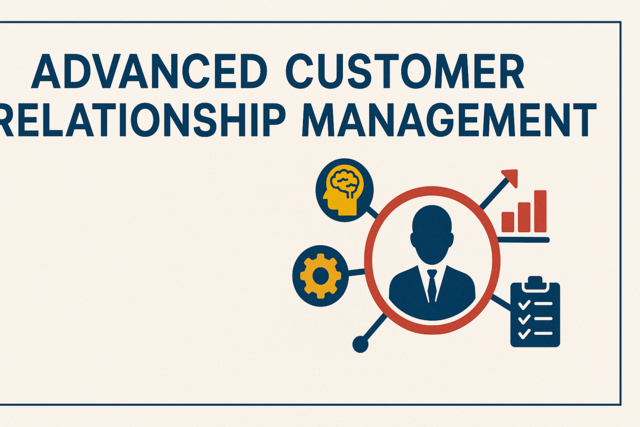 5 hours
0.5 CEUs
Advanced Customer Relationship Management
+ More Info
5 hours
0.5 CEUs
Advanced Customer Relationship Management
+ More Info
-
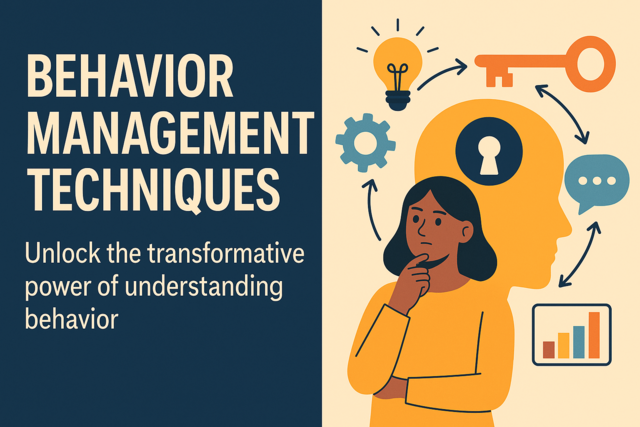 6 hours
0.6 CEUs
Behavior Management Techniques
+ More Info
6 hours
0.6 CEUs
Behavior Management Techniques
+ More Info
-
 3 hours
0.3 CEUs
Agile and Scrum Fundamentals
+ More Info
3 hours
0.3 CEUs
Agile and Scrum Fundamentals
+ More Info
-
 3 hours
0.3 CEUs
Exploring Parallel Universes
+ More Info
3 hours
0.3 CEUs
Exploring Parallel Universes
+ More Info
-
 5 hours
0.5 CEUs
Advanced Communication Skills for the Workplace
+ More Info
5 hours
0.5 CEUs
Advanced Communication Skills for the Workplace
+ More Info
-
 6 hours
0.6 CEUs
Modern Tribes: Building Supportive Friend Circles
+ More Info
6 hours
0.6 CEUs
Modern Tribes: Building Supportive Friend Circles
+ More Info
-
 5 hours
0.5 CEUs
Conscious Living: Mastering Mindfulness
+ More Info
5 hours
0.5 CEUs
Conscious Living: Mastering Mindfulness
+ More Info
-
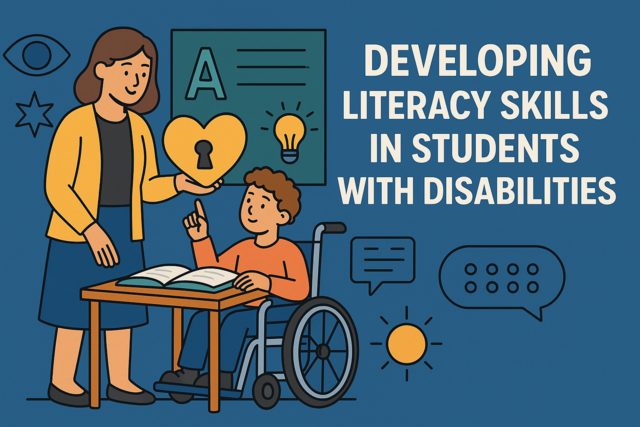 5 hours
0.5 CEUs
Developing Literacy Skills in Students with Disabilities
+ More Info
5 hours
0.5 CEUs
Developing Literacy Skills in Students with Disabilities
+ More Info
-
 3 hours
0.3 CEUs
Sound Therapy and Vibrational Healing
+ More Info
3 hours
0.3 CEUs
Sound Therapy and Vibrational Healing
+ More Info
-
 6 hours
0.6 CEUs
Data-Driven Decision Making in Special Education
+ More Info
6 hours
0.6 CEUs
Data-Driven Decision Making in Special Education
+ More Info
-
 3 hours
0.3 CEUs
The Role of Peer Support in Trauma Recovery: Building Community and Resilience
+ More Info
3 hours
0.3 CEUs
The Role of Peer Support in Trauma Recovery: Building Community and Resilience
+ More Info
-
 5 hours
0.5 CEUs
Engaging Families in the Educative Process
+ More Info
5 hours
0.5 CEUs
Engaging Families in the Educative Process
+ More Info
-
 6 hours
0.6 CEUs
Assistive Communication Devices: Maximizing Potential
+ More Info
6 hours
0.6 CEUs
Assistive Communication Devices: Maximizing Potential
+ More Info
-
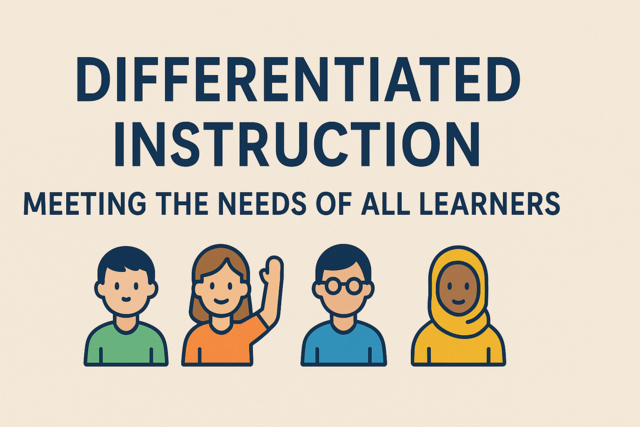 3 hours
0.3 CEUs
Differentiated Instruction: Meeting the Needs of All Learners
+ More Info
3 hours
0.3 CEUs
Differentiated Instruction: Meeting the Needs of All Learners
+ More Info
-
 7 hours
0.7 CEUs
Guided Meditation Practices
+ More Info
7 hours
0.7 CEUs
Guided Meditation Practices
+ More Info
-
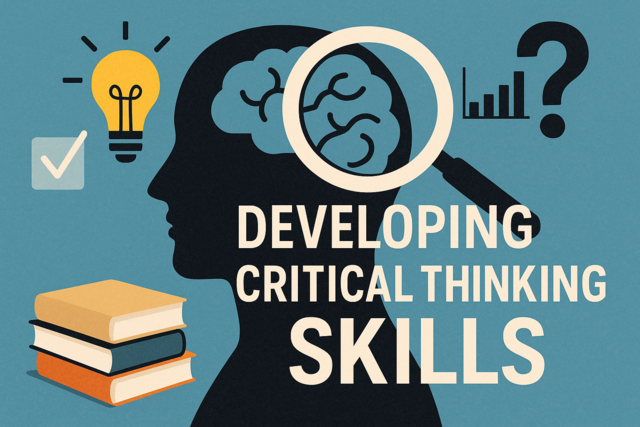 5 hours
0.5 CEUs
Developing Critical Thinking Skills
+ More Info
5 hours
0.5 CEUs
Developing Critical Thinking Skills
+ More Info
-
 7 hours
0.7 CEUs
Global Glam: International Perspectives on Modern Fashion
+ More Info
7 hours
0.7 CEUs
Global Glam: International Perspectives on Modern Fashion
+ More Info
-
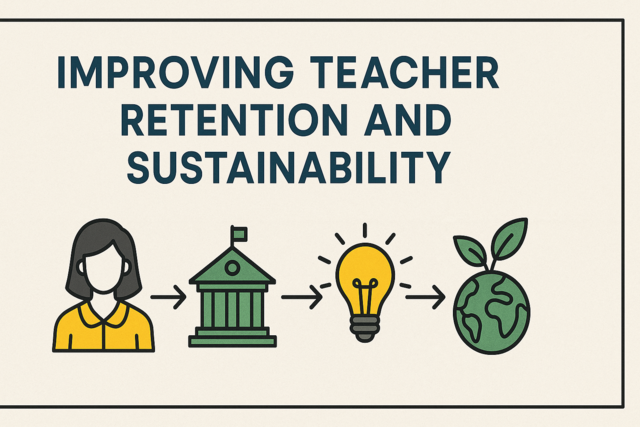 3 hours
0.3 CEUs
Improving Teacher Retention and Sustainability
+ More Info
3 hours
0.3 CEUs
Improving Teacher Retention and Sustainability
+ More Info
-
 3 hours
0.3 CEUs
Luxury Layering: The Art of Dressing with Opulence
+ More Info
3 hours
0.3 CEUs
Luxury Layering: The Art of Dressing with Opulence
+ More Info
-
 7 hours
0.7 CEUs
Vintage Visions: Integrating Past Styles in Modern Luxury
+ More Info
7 hours
0.7 CEUs
Vintage Visions: Integrating Past Styles in Modern Luxury
+ More Info
-
 7 hours
0.7 CEUs
The Unseen Energies in the Universe
+ More Info
7 hours
0.7 CEUs
The Unseen Energies in the Universe
+ More Info
-
 7 hours
0.7 CEUs
Effective Communication Skills for Everyday Life
+ More Info
7 hours
0.7 CEUs
Effective Communication Skills for Everyday Life
+ More Info
-
 7 hours
0.7 CEUs
Introduction to Instructional Design
+ More Info
7 hours
0.7 CEUs
Introduction to Instructional Design
+ More Info
-
 7 hours
0.7 CEUs
The Science of Miracles: When Logic Defies Understanding
+ More Info
7 hours
0.7 CEUs
The Science of Miracles: When Logic Defies Understanding
+ More Info
-
 3 hours
0.3 CEUs
Developing Technical Writing Skills
+ More Info
3 hours
0.3 CEUs
Developing Technical Writing Skills
+ More Info
-
 3 hours
0.3 CEUs
Supervisory Skills for New Managers
+ More Info
3 hours
0.3 CEUs
Supervisory Skills for New Managers
+ More Info
-
 4 hours
0.4 CEUs
Implementing Universal Design for Learning (UDL)
+ More Info
4 hours
0.4 CEUs
Implementing Universal Design for Learning (UDL)
+ More Info
-
 7 hours
0.7 CEUs
Emotional Intelligence: Enhancing Workplace Relationships
+ More Info
7 hours
0.7 CEUs
Emotional Intelligence: Enhancing Workplace Relationships
+ More Info
-
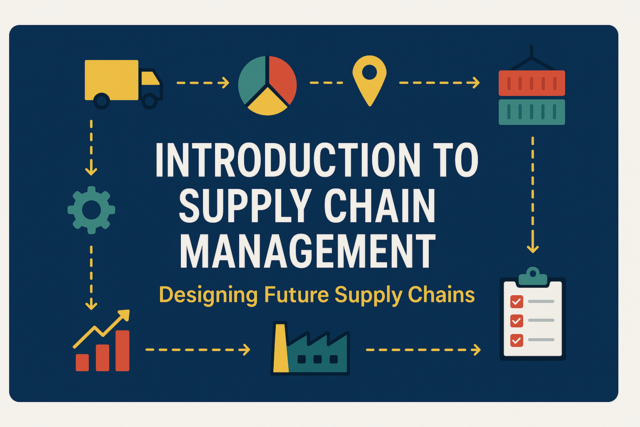 4 hours
0.4 CEUs
Introduction to Supply Chain Management
+ More Info
4 hours
0.4 CEUs
Introduction to Supply Chain Management
+ More Info
-
 5 hours
0.5 CEUs
Breaking Bad Patterns: Creating New Relationship Traditions
+ More Info
5 hours
0.5 CEUs
Breaking Bad Patterns: Creating New Relationship Traditions
+ More Info
-
 4 hours
0.4 CEUs
Recognizing Hidden Trauma: Identifying Symptoms and Triggers
+ More Info
4 hours
0.4 CEUs
Recognizing Hidden Trauma: Identifying Symptoms and Triggers
+ More Info
-
 7 hours
0.7 CEUs
Emotional Detox: Clearing Pathways to Better Relationships
+ More Info
7 hours
0.7 CEUs
Emotional Detox: Clearing Pathways to Better Relationships
+ More Info
-
 4 hours
0.4 CEUs
Mysteries of the Quantum Realm
+ More Info
4 hours
0.4 CEUs
Mysteries of the Quantum Realm
+ More Info
-
 3 hours
0.3 CEUs
Essentials of Contract Negotiation
+ More Info
3 hours
0.3 CEUs
Essentials of Contract Negotiation
+ More Info



